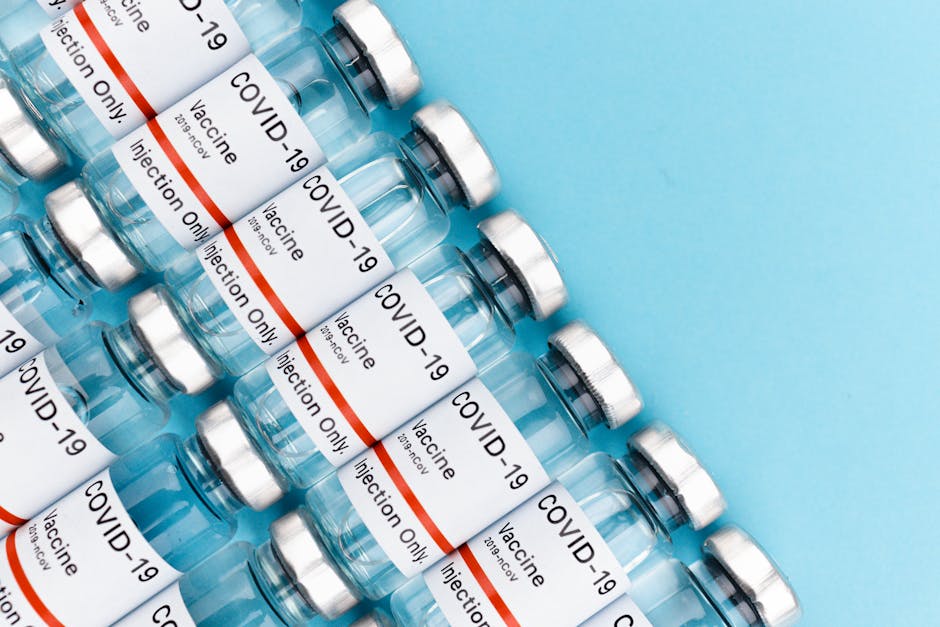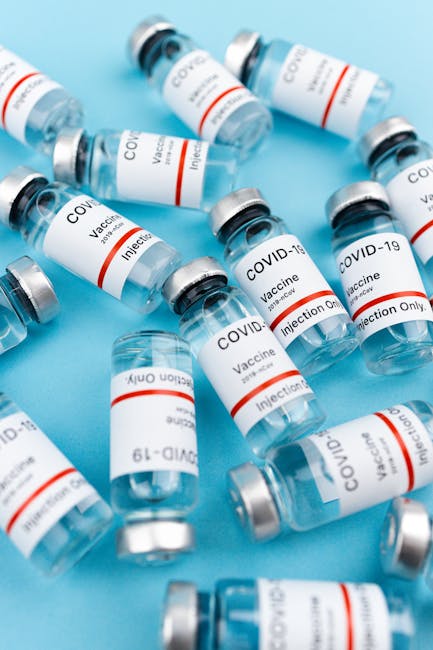FDA COVID-19 Vaccine News: Updates, Authorizations, and Safety Information
The Food and Drug Administration (FDA) plays a crucial role in ensuring the safety and efficacy of COVID-19 vaccines available in the United States. This article provides a comprehensive overview of the latest FDA news and updates related to COVID-19 vaccines, covering authorizations, safety monitoring, ongoing research, and addressing common public concerns.
FDA’s Role in COVID-19 Vaccine Development and Authorization
The FDA’s rigorous process for evaluating COVID-19 vaccines involves several phases, beginning with pre-clinical testing in laboratories and animal models. This is followed by extensive clinical trials in humans, typically involving three phases to assess safety, dosage, and efficacy. Only after the successful completion of these phases and a thorough review of the data by the FDA’s scientists and advisory committees does the agency grant Emergency Use Authorization (EUA) or full approval.
The EUA pathway allows for the rapid deployment of vaccines during public health emergencies, provided that the potential benefits outweigh the known and potential risks. Full approval, on the other hand, follows a more comprehensive review process and signifies a higher level of confidence in the vaccine’s safety and efficacy.
Emergency Use Authorization (EUA) vs. Full Approval
- EUA: Granted during public health emergencies, based on available data demonstrating the vaccine’s potential benefits outweigh risks. Requires ongoing monitoring and data submission.
- Full Approval (Biologics License Application or BLA): Requires more extensive data, including longer-term safety and efficacy studies, and a more rigorous review process.
Key COVID-19 Vaccines Authorized by the FDA
Several COVID-19 vaccines have received either EUA or full approval from the FDA. These include:
- Pfizer-BioNTech COVID-19 Vaccine: This mRNA vaccine was among the first to receive EUA and later full approval.
- Moderna COVID-19 Vaccine: Another mRNA vaccine, also granted EUA and later full approval.
- Johnson & Johnson/Janssen COVID-19 Vaccine: This viral vector vaccine received EUA and is currently under review for full approval.
Each vaccine has its own specific characteristics regarding efficacy, dosage, and potential side effects. It’s essential to consult with a healthcare professional to determine which vaccine is most suitable for individual needs.
FDA’s Ongoing Monitoring of COVID-19 Vaccine Safety
The FDA continues to actively monitor the safety of COVID-19 vaccines post-authorization through several systems, including the Vaccine Adverse Event Reporting System (VAERS). VAERS allows individuals to report any adverse events following vaccination, enabling the FDA to track potential safety signals and conduct further investigations.
The FDA emphasizes that while rare, serious side effects can occur, the benefits of COVID-19 vaccination significantly outweigh the risks for most individuals.

Addressing Common Concerns about COVID-19 Vaccine Safety
- Myocarditis and Pericarditis: Rare cases of myocarditis (inflammation of the heart muscle) and pericarditis (inflammation of the lining around the heart) have been reported, primarily in young males after receiving mRNA vaccines. The FDA is actively monitoring these cases and working to understand the risks.
- Blood Clots: Rare cases of blood clots have been associated with the Johnson & Johnson vaccine. The FDA has issued guidance and recommendations to mitigate these risks.
- Allergic Reactions: Severe allergic reactions are rare but possible. Individuals with a history of severe allergic reactions should discuss vaccination with their doctor.
COVID-19 Vaccine Booster Shots and Updates
The FDA has authorized booster shots for many COVID-19 vaccines to maintain high levels of protection against the virus, particularly against emerging variants. The agency continually evaluates the need for updated booster shots based on evolving viral variants and waning immunity.

Staying updated on the latest FDA guidance regarding booster shots is crucial for maintaining optimal protection. This information is regularly updated on the FDA website and through official communication channels.
FDA’s Role in Addressing Vaccine Hesitancy
The FDA plays a role in addressing vaccine hesitancy by providing clear, accurate, and accessible information to the public. The agency strives to maintain transparency in its decision-making processes, providing detailed explanations of its evaluations and authorizations. This includes releasing comprehensive data on vaccine efficacy and safety profiles.
Collaboration with healthcare providers and public health officials is crucial in promoting vaccine confidence and addressing public concerns.

Where to Find Reliable Information on FDA COVID-19 Vaccine News
It’s essential to rely on credible sources for information on FDA COVID-19 vaccine news. The official FDA website is the primary source for accurate and up-to-date information. Other reliable sources include the Centers for Disease Control and Prevention (CDC) and reputable medical journals and news organizations.
Be wary of misinformation and unverified sources that might spread inaccurate or misleading information about COVID-19 vaccines.
Conclusion
The FDA’s role in authorizing and monitoring COVID-19 vaccines is critical in ensuring public safety and health. Staying informed about the latest FDA news, safety updates, and recommendations is crucial for making informed decisions about vaccination. By relying on credible sources and consulting with healthcare professionals, individuals can access accurate information and make choices that best protect their health and the health of their communities.
